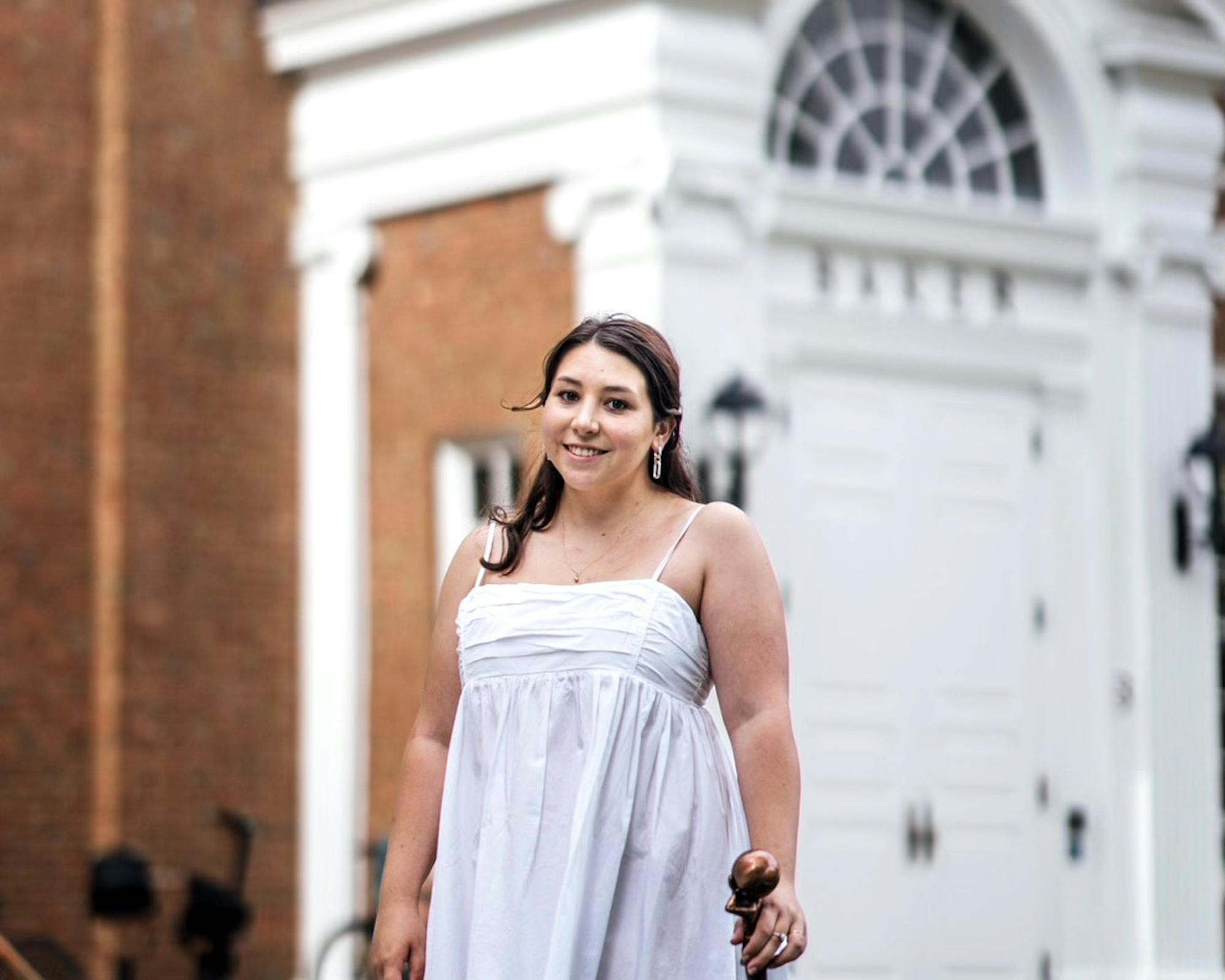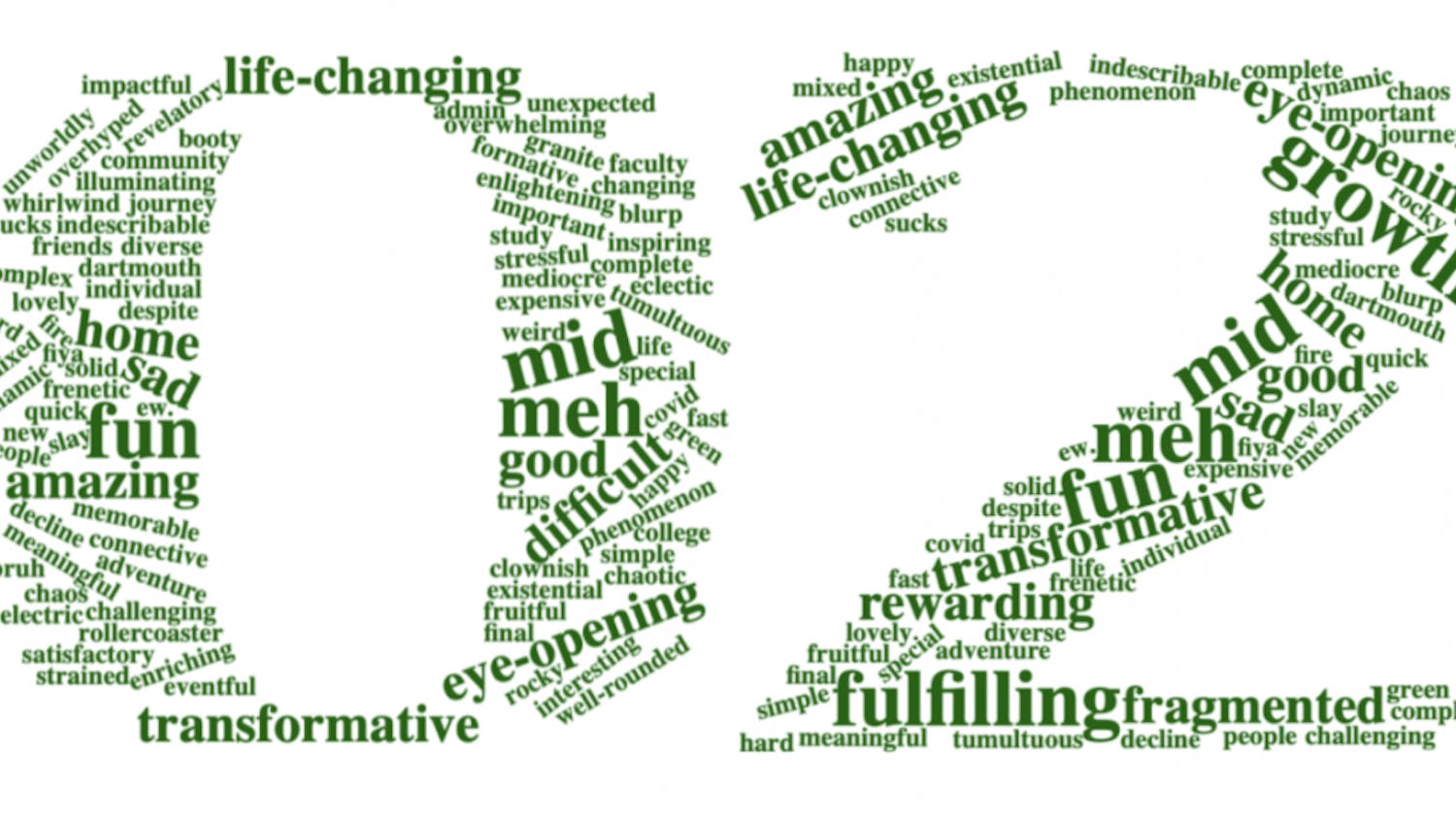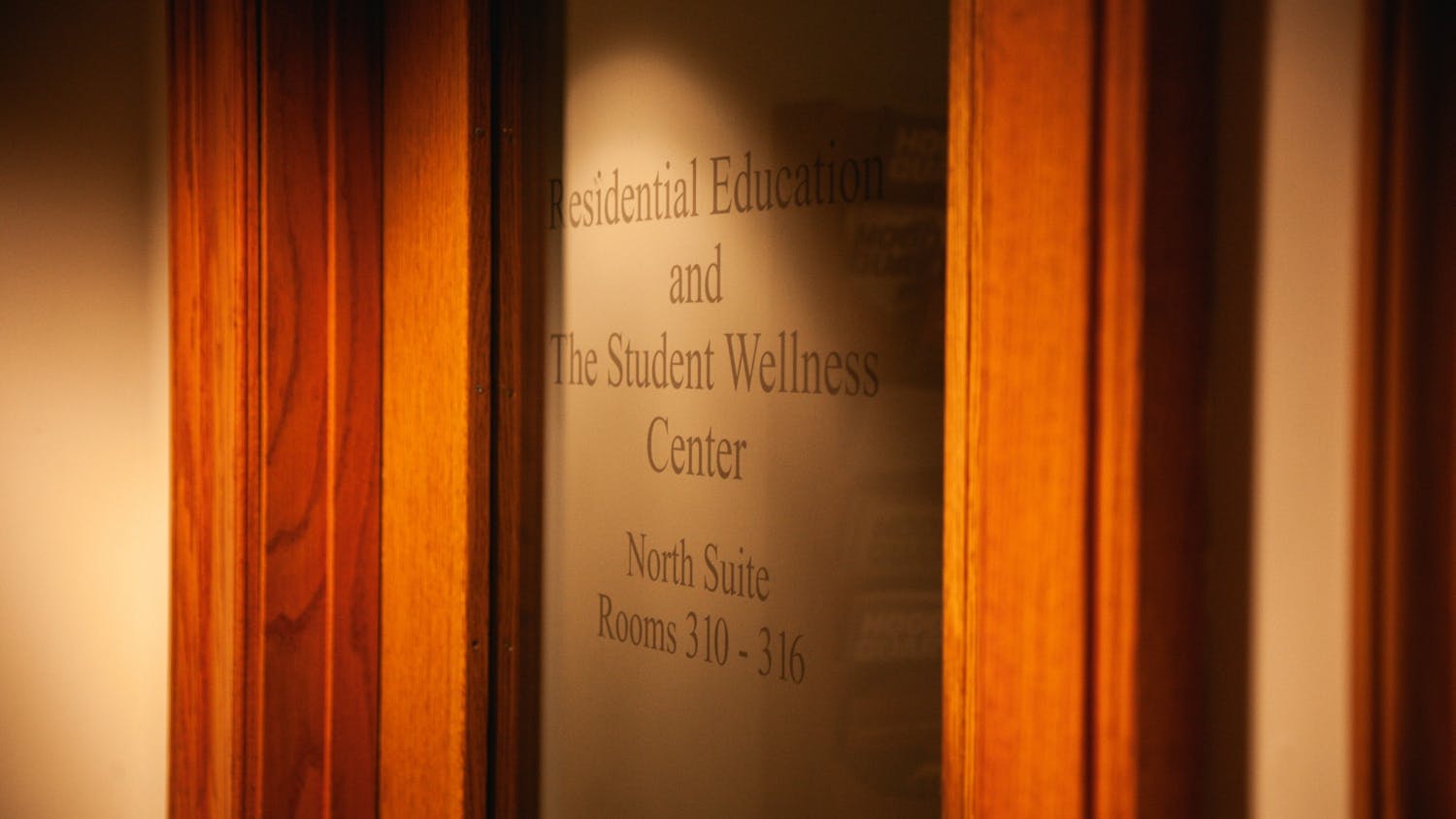This article is featured in the 2023 Commencement & Reunions special issue.
“Treat others how you would like to be treated:” the Golden Rule. This is the first lesson I can remember my parents ingraining in me. I always thought it was pretty self-explanatory: If I would want help or kindness in a situation, then I should provide that same care to someone else — whether they be a complete stranger or my best friend. It was not until I came to Dartmouth that I truly realized not everyone goes through the world with this mindset.
In the first few weeks of freshman fall, I vividly remember taking care of a boy I had never met before as he threw up. I assumed his friends were too drunk to look after him, but when I returned to my floormates later that night, I was asked if I knew him. When I responded that I did not, they asked why I helped him. I was taken aback. If I was alone and throwing up from accidentally over-imbibing, I would hope that some kind classmate would help me — so I stepped in. This is the first time I remember thinking how odd it is that some people can see their peers in pain and not be pulled to do anything about it.
Since then, I cannot count how many strangers I have taken care of as they got sick — their friends nowhere to be found. And every time this happens, I am shocked. How could anyone leave their friend in this situation? And moreover, how can people just walk by someone in distress and not even check in? We go to a small college — a small community in which you know everyone within a few degrees of separation. Wouldn’t you want one of your peers to check in if that was you, slumped over a trash can?
Soon after this, we were all sent home for the COVID-19 pandemic. When I returned to the Upper Valley a few months later, I lived off campus in the larger community. I would go to CVS or to the grocery store and various adults would stop me to talk to me. Sometimes, they simply asked me if I had ever tried a product they were curious about. But other times, they told me that their father just died, or that their daughter was really sick and how it was weighing on them. I would talk to these strangers — leaving them with wishes of hope and healing — and then continue on with my shopping. Sometimes a friend would see me talking to an adult and ask how I know them — or I would tell stories about these interactions, and peers would ask me why I even engage with people I don’t know. I explain that while I don’t initiate any sort of conversation, if a stranger finds my presence comforting, and they want to share something with me, the least I can do is listen. We were going through a pandemic, life was hard enough. It costs me nothing to lend an ear — why was my kindness towards strangers so confusing and looked down upon?
My sophomore spring, I went through training for the Sexual Assault Peer Alliance, where I learned how to provide trauma informed support to survivors of sexual and gender-based violence. I remember being told how impressive I was by one of the older SAPAs and our trainers when we role-played a scenario in which I supported them through processing their assault. This was when I realized that not everyone is a natural caregiver, and that my words — for some reason — were poignant and comforting.
The encouragement I received while going through SAPA training was critical in understanding that my care for others — even those I don’t know — was not simply standard human behavior. But at Dartmouth, respect comes from prestige — not kindness. I would spend my days helping others and get asked why I was doing it. I would be told to stop — that they’d be fine, they’d figure it out themselves. With all these comments, I often felt like I was doing something wrong: Maybe I shouldn’t be nice to strangers, maybe I shouldn’t want to support my peers through hard times. But SAPA made me realize that I wasn’t doing something wrong by wanting to help others. Sure, maybe it is abnormal, but that doesn’t inherently mean it’s bad. In fact, maybe it makes me special.
I went on to become the president of SAPA, a both challenging and rewarding experience during which I talked friends and strangers alike through their experiences of being stalked, groped or raped multiple times per week. I dedicated myself to creating spaces where people could feel comfortable sharing their vulnerabilities and fears — and I worked to help them find a little peace in the process. I cannot count how many people I supported in this process, but I can only hope that I made their time here a little bit more positive — and that they will pass on this kindness by showing others the same care.
My junior spring, I became the executive editor of production at this very newspaper. Throughout our 36 weeks of production, we edited and published 17 obituaries. We had to approve the news of our friends, peers and professors’ deaths — not once, not twice but 17 times. We lost 17 community members in one year, and what do we have to show for it? One Day of Caring. An email would come, and given a few exceptions, life here continued on as normal. Classes weren’t canceled, people didn’t check on each other. There was, and still is, little to no time made to mourn the loss of community life.
Without this institutional effort, I made it a personal priority to create spaces for my peers to grieve the loss of other students — and again, I was asked why I was doing this. But this time, instead of feeling like I was doing something wrong, I was confident I was doing something right. Just because I didn’t personally know the student who died, that doesn’t mean their life didn’t matter. They were still my classmates. They were still members of this community. And if I had just lost my friend, I would want a space to be together — to not have to deal with the grief alone. I was proud to provide that space for others as well.
Throughout my senior year here at Dartmouth, I have been told by three individuals that I am part of the reason they are still here today. For one of them, I had no idea that they were in such a dark place. We simply chatted. I was kind. I don’t think I did anything special except listen to them.
You never know the impact you may have.
It took becoming SAPA President for me to gain the confidence to understand that my big heart was not a weakness, but a strength. It was something special about me — a part of myself that I have come to love and appreciate so deeply — and something that I realized I could nurture and grow. Now, I am going to graduate school to get my master’s in clinical mental health counseling — to make a profession out of helping others. So, for any potential or current Dartmouth student reading this, believe in yourself. Trust your gut. Even if it’s abnormal, embrace kindness. Embrace strangers and new relationships. You never know what a little bit of kindness can do.
Mia Russo is a former production executive editor of The Dartmouth and a member of the Class of 2023.




